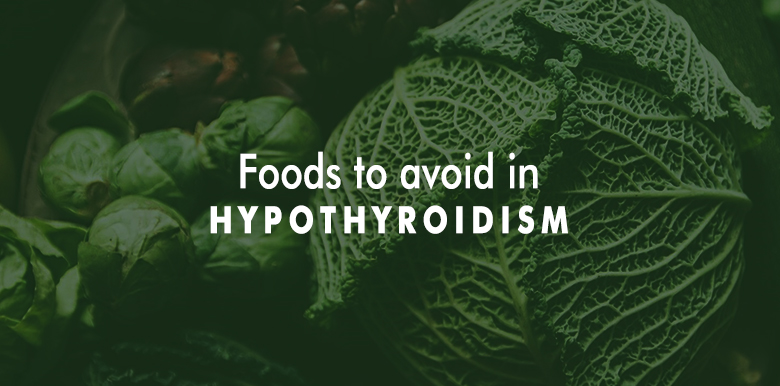Hypothyroidism occurs when levels of the two thyroid hormones, triiodothyronine (T3) and thyroxine (T4), are too low. Although changing your diet alone isn’t enough to restore normal thyroid hormone levels, avoiding some foods and eating more of others can improve your body’s absorption of these hormones.
Hypothyroidism can be a tricky condition to manage, and what you eat can interfere with your treatment. Some nutrients heavily influence the function of the thyroid gland, and certain foods can inhibit your body’s ability to absorb the replacement hormones you may take as part of your thyroid treatment.
Having a thyroid condition is no picnic, but you’re not alone with this health issue. As with many health conditions, some factors are out of your control, including your family history and the environment around you. But diet also plays a prominent role — and since you’re the one in charge of your plate, you can decide which thyroid-friendly foods to choose.
Some items on this list may strike you as odd, like fiber and coffee, because for many other diets they’re considered ‘healthy’ or ‘safe’ picks. You can still enjoy these foods groups, but moderating your intake is a good idea when managing hypothyroidism.
But many of the others to watch out for already fall into the no-no category as part of a smart diet, so skipping them, or at least cutting way back, is definitely a no-brainer. These include fried fast-food meals, salty processed foods, sugary treats, such as pastry, cake, cookies, and ice cream, and excessive alcohol.
Foods to avoid –
Many common foods and supplements contain compounds that interfere with thyroid function. In general, it’s best to avoid the following:
Soy –
Studies suggest that phytoestrogens in soybeans and soy-rich foods may inhibit the activity of an enzyme that makes thyroid hormones. One study found that women who consumed soy supplements were three times more likely to develop hypothyroidism.
Iodine-rich foods –
Some forms of hypothyroidism are caused by a lack of sufficient iodine. In such cases, using iodized salt or iodine-enriched foods can be beneficial. But eating too much iodine can have the opposite effect and suppress thyroid gland activity. Check with your doctor before taking supplements.
Iron and calcium supplements –
Taking iron or calcium supplements can also change the effectiveness of many thyroid medications.
High-fiber foods –
Although a high-fiber diet is usually recommended, too much fiber eaten right after taking thyroid medicines may interfere with their absorption. Wait two hours before you eat a high-fiber meal (one with more than about 15 grams of fiber).
Certain vegetables –
Cruciferous vegetables that are rich in fiber, like broccoli, cabbage, spinach, kale, and Brussels sprouts, may inhibit thyroid medication absorption. Reducing the amounts of such produce in the morning right after taking your medication may help.
Avoid fatty meats –
Forego the fatty meats and other sources heavy on the saturated fat. According to the Mayo Clinic, people with hypothyroidism may be at increased risk for heart disease because of an association between hypothyroidism and higher levels of low-density lipoprotein cholesterol. As a general rule, look for leaner cuts of beef, or go for poultry or fish.
Gluten found in Pasta –
Those with hypothyroidism may want to consider minimising their intake of gluten, a protein found in foods processed from wheat, barley, rye, and other grains. An article published in May 2017 in the journal Endocrine Connections noted that hypothyroidism and celiac disease are often present together, and while no research has demonstrated that a gluten-free diet can treat thyroid conditions, you may still want to talk to a doctor about whether it would be worth eliminating gluten, or getting tested for celiac disease.
Sugary foods –
Hypothyroidism can cause the body’s metabolism to slow down. That means it’s easy to put on pounds if you aren’t careful. It’s best to reduce the amount of sugar you eat or try to eliminate it completely from your diet.
Processed foods –
Processed foods tend to have a lot of sodium, and people with hypothyroidism should avoid sodium. Having an underactive thyroid increases a person’s risk for high blood pressure, and too much sodium further increases this risk.
Coffee –
Caffeine has been found to block absorption of thyroid hormone replacement. People who were taking their thyroid medication with their morning coffee had uncontrollable thyroid levels.
